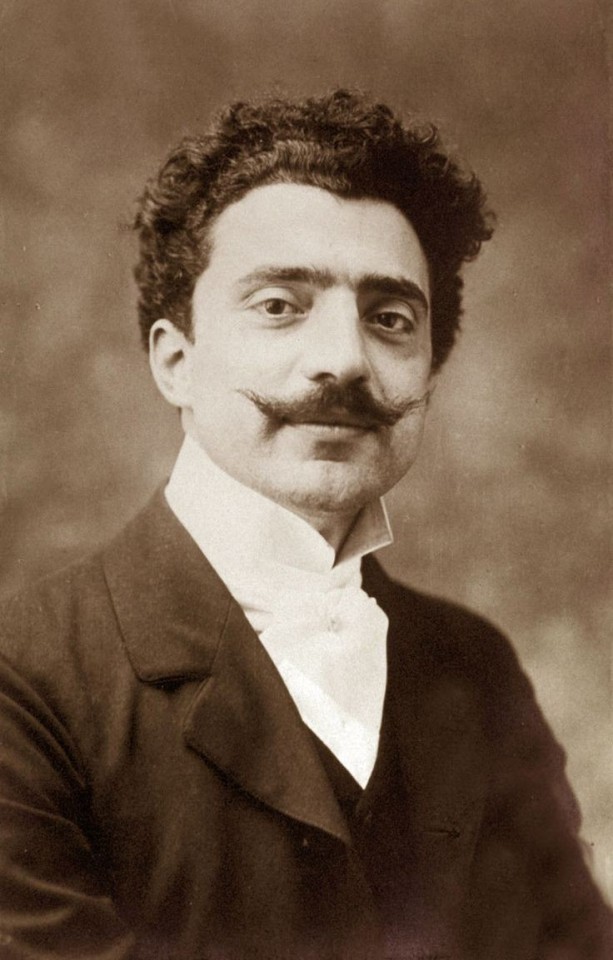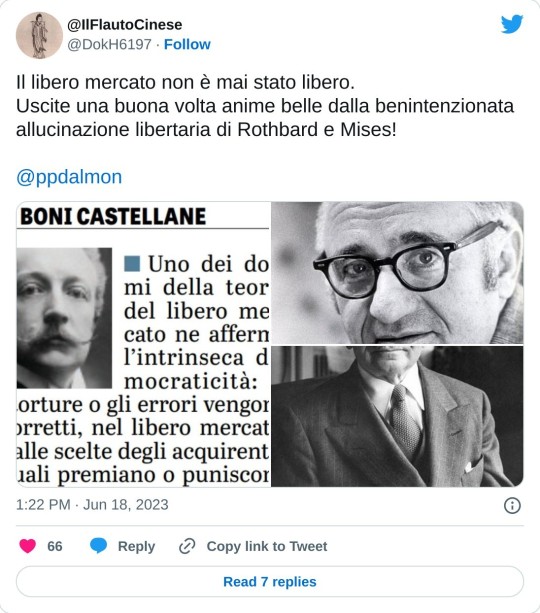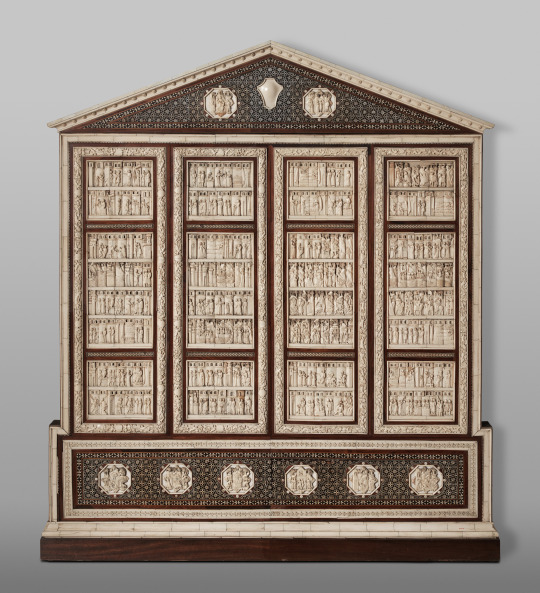#pecorone
Explore tagged Tumblr posts
Photo

#opinioni di un clown#massa#scelta di massa#miglior scelta#convinzione#adeguarsi alla massa#maggioranza#impopolare#responsabilità#pecorone#così fan tutti
4 notes
·
View notes
Text
Ninna nanna, nanna ninna, er pupetto vò la zinna: dormi, dormi, cocco bello, sennò chiamo Farfarello Farfarello e Gujermone che se mette a pecorone, Gujermone e Ceccopeppe che se regge co le zeppe, co le zeppe d'un impero mezzo giallo e mezzo nero. Ninna nanna, pija sonno ché se dormi nun vedrai tante infamie e tanti guai che succedeno ner monno fra le spade e li fucili de li popoli civili Ninna nanna, tu nun senti li sospiri e li lamenti de la gente che se scanna per un matto che commanna; che se scanna e che s'ammazza a vantaggio de la razza o a vantaggio d'una fede per un Dio che nun se vede, ma che serve da riparo ar Sovrano macellaro. Chè quer covo d'assassini che c'insanguina la terra sa benone che la guerra è un gran giro de quatrini che prepara le risorse pe li ladri de le Borse. Fa la ninna, cocco bello, finchè dura sto macello: fa la ninna, chè domani rivedremo li sovrani che se scambieno la stima boni amichi come prima. So cuggini e fra parenti nun se fanno comprimenti: torneranno più cordiali li rapporti personali. E riuniti fra de loro senza l'ombra d'un rimorso, ce faranno un ber discorso su la Pace e sul Lavoro pe quer popolo cojone risparmiato dar cannone! Trilussa - La ninna nanna della guerra
10 notes
·
View notes
Text
I Russi
Questa strana gente nella quale di solito predominano due passioni: la pigrizia e l'amor proprio, ma in cui talvolta si trova una riserva di allegra spensieratezza e un'indifferenza verso se stessi tipicamente russa.
N. Leskov, [Овцебык - Ovcebyk, 1863], Il Pecorone, in Il viaggiatore incantato e altri racconti, Roma, La biblioteca di Repubblica, 2004 [Trad. D. Cavaion]
7 notes
·
View notes
Text

Ninna nanna, nanna ninna, er pupetto vò la zinna: dormi, dormi, cocco bello, sennò chiamo Farfarello Farfarello e Gujermone che se mette a pecorone, Gujermone e Ceccopeppe che se regge co le zeppe, co le zeppe d'un impero mezzo giallo e mezzo nero.
Ninna nanna, pija sonno ché se dormi nun vedrai tante infamie e tanti guai che succedeno ner monno fra le spade e li fucili de li popoli civili Ninna nanna, tu nun senti li sospiri e li lamenti de la gente che se scanna per un matto che commanna; che se scanna e che s'ammazza a vantaggio de la razza o a vantaggio d'una fede per un Dio che nun se vede, ma che serve da riparo ar Sovrano macellaro.
Chè quer covo d'assassini che c'insanguina la terra sa benone che la guerra è un gran giro de quatrini che prepara le risorse pe li ladri de le Borse.
Fa la ninna, cocco bello, finchè dura sto macello: fa la ninna, chè domani rivedremo li sovrani che se scambieno la stima boni amichi come prima.
So cuggini e fra parenti nun se fanno comprimenti: torneranno più cordiali li rapporti personali. E riuniti fra de loro senza l'ombra d'un rimorso, ce faranno un ber discorso su la Pace e sul Lavoro pe quer popolo cojone
Ninna nanna della guerra. Trilussa
19 notes
·
View notes
Text
youtube
NUN JE DA' RETTA ROMA | GIGI PROIETTI
Nun je dà retta, Roma Don't pay attention to them, Roma Che t'hanno cojonato That they fooled you 'Sto morto a pennolone This hanged dead man È morto suicidato Died of suicide
Se invece poi te dicheno If then they tell you instead Che un morto s'è ammazzato That a dead man killed himself E allora è segno certo Then it's a sure sign Che l'hanno assassinato That someone killed him
Che fai, nun me risponni? What do you do, don't you answer me? Me canti 'no stornello You sing me this little song Lo vedi chi è er padrone Do you see who is the boss Insorgi pia er cortello Rebel, take the knife
Annamo, daje Roma Let's go, come on Roma Chi se fa pecorone He who turns into a sheep Er lupo se lo magna The wolf eats him Abbasta uno scossone A shake is enough
va beh, fior de limone whatever, lemon flower
è inutile che provochi it's useless that you provoke me a me nun me ce freghi you don't screw me la gatta presciolosa the hasty cat fece dei figli ciechi had blind kids
sei troppo sbaraglione you're too venturing con te nun me ce metto I don't follow you io batto un'altra strada I go on another road io c'ho pazienza aspetto I am patient I wait
vojo cantà così I want to sing like this fiorin fiorello (?*) little flower flowery
----
[the background story of this song is here] [la gatta frettolosa fece i gattini ciechi = Italian saying/idiomatic sentence: if you want to rush things the result won't probably be good for you] [*not sure it says fiorin fiorello but I cannot understand the words nor I can find other lyrics than those]
@sciogli-lingua please correct me if you have time :D I am not from Roma I may have got something wrong big time.
#it#italian#langblr#italiano#italian language#italian langblr#language#languages#parole words#traduzioni#italian regional languages#roma regional language#Youtube
4 notes
·
View notes
Text
riflettendo sul senso della vita sono arrivata alla conclusione che lo scopo della mia esistenza, breve o longeva (vabbè lunga),sarà lasciare un impatto,anche ad una sola persona. riflettere , avere un pensiero critico, rimuginare sulle cose,chiedersi il perché,interrogarsi,mantiene la mente continuamente in moto. noi siamo pensiero. vorrei avere quella voglia o anche quel tempo libero di mettermi comoda a scrivere tutto ciò che mi passa per la testa, poiché una persona si conosce a fondo solo attraverso il silenzio; chi si circonda continuamente di rumori, persone e blatera ininterrottamente,non si formerà mai e rimarrà ancorata al giudizio e all’ideologia delle altre persone. e no, non voglio dire come un pecorone perché questo paragone è usato da tutti e io mi voglio distaccare :) piano piano,nel corso della mia breve esistenza mi sono interrogata spesso sul perché io volessi apparire e professarmi “quella diversa”.per me l’autenticità è la chiave per una vita prosperosa perché avere le proprie idee e opinioni su cose che ci circondano, ma anche su pensieri astratti,su qualsiasi cosa, ti mette in una posizione di essere a 1000 passi avanti dagli altri. nonostante TikTok ci stia uccidendo, a me è servito molto anche per ampliare la mia conoscenza. mi ha indotto poco a poco al voler leggere i libri. non mi è mai piaciuto leggere per via della mia soglia dell’attenzione molto debole. non c’è cosa più bella della cultura. mi piace e mi piacerà per sempre pensare ad una cultura come libera ,senza restrizioni e senza timeline come purtroppo mi hanno portato a pensare a causa della scuola. il mio sogno è anche ampliare il mio vocabolario perché ho notato che ormai noi della gen z usiamo sempre ripetutamente le stesse parole,portando indirettamente il prossimo a non prenderci seriamente
ok non so nemmeno quello che sto dicendo 
0 notes
Text

the robot pet of the day is: Pecoron (2003)
0 notes
Text
MA L'AMORE NO - ATTO QUARTO
MA L’AMORE NO – ATTO QUARTO
“Forse te n’andrai e d’altri amori le carezze cercherai, ahimè! E se tornerai, già sfiorita ogni dolcezza troverai in me.” Ahimè! Ahi me, misero e tapino, ahi me, pecorone e cacasotto, ahi me, nato male e malnato, ahi me, cornuto dalla nascita, ahi me, edipico e impotente! E così ti mando via, non vai via tu, ti mando via io, ma non basta, ti istigo a delinquere, ti do un uomo con cui…

View On WordPress
#ahimè#amore#atto#Bortolo#cacasotto#carezze#Carlotta#Carmelo#femmina#Gaspare#Giobatta#Giobattino#impotenza#Jonny#lupanare#Mascali#maschio#Ortigia#pecorone#Pierino#Pincopallo#quarto#Rosario#Scarpel#scellerato#Sempronio#Sergio#soldato#tapino
0 notes
Video
youtube
Gigi Proietti "Ninna nanna della guerra" di Trilussa - Ballarò 17/11/2015
Ninna nanna, nanna ninna, er pupetto vò la zinna: dormi, dormi, cocco bello, sennò chiamo Farfarello Farfarello e Gujermone che se mette a pecorone, Gujermone e Ceccopeppe che se regge co le zeppe, co le zeppe d’un impero mezzo giallo e mezzo nero.
Ninna nanna, pija sonno ché se dormi nun vedrai tante infamie e tanti guai che succedeno ner monno fra le spade e li fucili de li popoli civili
Ninna nanna, tu nun senti li sospiri e li lamenti de la gente che se scanna per un matto che commanna; che se scanna e che s’ammazza a vantaggio de la razza o a vantaggio d’una fede per un Dio che nun se vede, ma che serve da riparo ar Sovrano macellaro.
Chè quer covo d’assassini che c’insanguina la terra sa benone che la guerra è un gran giro de quatrini che prepara le risorse pe li ladri de le Borse.
Fa la ninna, cocco bello, finchè dura sto macello: fa la ninna, chè domani rivedremo li sovrani che se scambieno la stima boni amichi come prima. So cuggini e fra parenti nun se fanno comprimenti: torneranno più cordiali li rapporti personali.
E riuniti fra de loro senza l’ombra d’un rimorso, ce faranno un ber discorso su la Pace e sul Lavoro pe quer popolo cojone risparmiato dar cannone!
Trilussa
3 notes
·
View notes
Text
Padre perdona codesti statalisti di provincia, socialisti a loro insaputa, perché non sanno quello che dicono.
Suggerire che sia il "mercato" che discrimina e ammazza, è come dire che la vita ammazza (tutta colpa di quel bastardo di Darwin); è patetico, confusionario quanto confondere correlazione e causalità.
E' DESIDERIO PECORONE DI RRREGOLE UNIVERSALI (para benecomunismo para cattolico) perché la realtà nuda cruda e competitiva è uno spaventoso casino; peggio ancora la meritocrazia.
Il rapporto con la meritocrazia distingue il social sinistro, proteso a tutelare "il debole" che decide lui a patto che ciò lo mantenga a spese altrui, dal nazional social popolare che la meritocrazia accetta, a patto che sia rendita, poter brandire da seduti pezzi di carta garantiti dallo stato. La brutta notizia che spazza via e sinistro e nazional socialista è che meritocrazia significa agilità, EVOLUZIONE, cioè capacità di leggere e adattarsi al costante cambiamento.

L'abbaglio micidiale in cui credono fermamente....(cit)
9 notes
·
View notes
Photo

Cabinet frontal with panels from two Embriachi casketsca. 1400–1409
Baldassare degli Embriachi Italian
On view at The Met Fifth Avenue in Gallery 307
The scenes displayed are taken from Medieval romances and Classical mythology. Initially they were mounted upon two large chests used by the powerful ruling Lombard family, the Visconti, on their visits to the Certosa of Pavia. The stories represented include: the Golden Eagle (Il Pecorone) by Giovanni Forentino (1378); the tale of Mattabruna (an old French Romance); Jason and the Golden Fleece; the story of Pyramus and Thisbe; and the story of Hero and Leander. These chests were among the most ambitious works created by the bone and ivory carvers workshop, headed by the Florentine entrepreneur, Baldassare degli Embriachi.
2 notes
·
View notes
Text

il pidino emiliota, o era il pidiota emiliano, reagirà con un torvo "mo veh pensate ai candidati fassisti vostri, soccmel", ma in cuor suo je rode l'esser ancora un volta trattato da pecorone prono #autoinculante come un senese qualunque. Ci basta :D
2 notes
·
View notes
Text
The bad Shakespeare takes keep coming, I see. This one had the cleverness to couch itself as a personal narrative (makes it much more interesting, tbh). But as bad Shakespeare takes are my bread and butter, my boon and bane, mamma mia here we go again, with Merchant of Venice.
“But those who thought the play was irredeemably antisemitic were, the consensus went, vulgar and whiny—and, completely coincidentally, they were also Jewish, which somehow magically invalidated their opinions on this subject.”
I’m glad (is that even the right word?) this author found scholars that don’t think this play is anti-Semitic, but my experience with scholarship has been way more mixed than that. Suffice to say, this is literally all the play is known for these days, and views of the play as anti-Semitic are everywhere (Rosenbaum even had a hot take that since the Nazis liked it, it must be anti-Semitic). Didn’t know Harold Bloom thinks this play is anti-Semitic, though. That in itself is a bit of a red flag, as Bloom is a notoriously poor reader of Shakespeare.
“[I]n Merchant, Portia unhappily fulfills her father’s requirements of her suitors, while in Il Pecorone, the lady enjoys drugging her suitors and robbing them blind. By removing this detail, Shakespeare removed the suggestion that malicious schemers come from all walks of life.”
Or, by removing this detail, Shakespeare removed the clear and abhorrent sexism of his original source that turned a woman robbed of her autonomy by her father’s will into a criminal. It’s almost as if you’re damned if you do, damned if you don’t.
“Dr. Lopez, one of the most respected physicians of the 16th century, had indiscreetly revealed that he once treated the Earl of Essex for venereal disease. The earl took revenge by framing Dr. Lopez for treason and arranging for his torture; while on the rack, Dr. Lopez “confessed”—though “like a Jew,” as the court record states, he denied all charges at trial, while the attorney for the Crown referred to him matter-of-factly as “a perjuring murdering traitor and Jewish doctor.”
This is a very twisted account of the Lopez affair and Essex’s motives in going against him, at least to my understanding. For context, Lopez was accused of receiving loads of money from the King of Spain to poison Queen Elizabeth.
According to Stephen Greenblatt, in Will of the World: “Essex had tried some years before to recruit Lopez as a secret agent. Lopez’s refusal—he chose instead directly to inform the queen—may have been prudent, but it created in the powerful earl a very dangerous enemy. After his arrest, he was initially imprisoned at Essex House and interrogated by the earl himself. But Lopez had powerful allies in the rival faction of the queen’s senior adviser William Cecil, Lord Burghley, and his son, Robert Cecil, who also participated in the interrogation and reported to the queen that the charges against her physician were baseless.” Lopez apparently had been taken bribes from various sources, and confessed (freely? under torture?) “that he had indeed entered into a treasonous-sounding negotiation with the king of Spain, but he insisted that he had done so only in order to cozen the king out of his money.” Weird.
Greenblatt isn’t a historian, though, and Essex was indeed an asshole to Lopez, (and for what is worth, I feel Lopez was innocent; I just get those vibes) but so far I can find no other source that Essex actively framed Lopez. Most likely he did some sleuthing, dug up some questionable, compromising stuff, and tried to blow a hearth flame into a firestorm.
“After all, the historical record gives Queen Elizabeth a cookie for dawdling on signing Dr. Lopez’s death warrant; her doubts about his guilt even led her to mercifully allow his family to keep his property, not unlike the equally merciful Duke of Venice in Shakespeare’s play.”
Again, Lopez had powerful allies (doesn’t get much higher than Burghley), and again, re: Greenblatt: “According to court observers, Elizabeth gave Essex a tongue-lashing, ‘calling him rash and temerarious youth, to enter into a matter against the poor man, which he could not prove, and whose innocence she knew well enough.’” A cupcake, then?
“And it is of course entirely unclear whether this trial and public humiliation of an allegedly greed-driven Jew attempting to murder an upstanding Christian, rapturously reported in the press with myriad antisemitic embellishments, had anything at all to do with Shakespeare’s play about the trial and public humiliation of a greed-driven Jew attempting to murder an upstanding Christian—which Shakespeare composed shortly after Dr. Lopez decomposed. Most likely these things were completely unrelated.”
Nearly all the major Shakespeare biographies and articles I’ve read literally and explicitly talks about the possible influence of Lopez’s execution on Merchant of Venice and names it as an inspiration: Greenblatt, (he even headcanons that Shakespeare watched the execution!) Bate, Ackroyd. That’s how Horn managed to ping my BS radar something awful—because I had read about it, many times, even if it was mentioned in passing. It’s solid, legit Shakespearean academic fanon. The sarcasm is really unwarranted, and childish besides.
“It was damned hard to hear the nuance while parsing lines like “Certainly the Jew is the very devil incarnal,” or “My master’s a very Jew; give him a present, give him a halter,” or explaining what Shylock meant when he planned to “go in hate, to feed upon / The prodigal Christian.”
The first two are the fool’s, Lancelot’s, lines, I think. As for Shylock’s hatred toward Christians, while ugly, it’s entirely understandable given the Christian characters’ treatment of him pre-play and during it (Antonio spitting on Shylock’s gaberdine and then asking him to borrow money from him is called out by Shylock himself for its sheer hypocrisy). It also fits Shylock’s character as an unassimilated Jew, resenting Christian hypocrisy and racism.
“The actor began the brief soliloquy that every English-speaking Jew is apparently meant to take as a compliment: ‘I am a Jew. Hath not a Jew eyes? Hath not a Jew hands, organs, dimensions, senses, affections, passions? . . . If you prick us, do we not bleed? If you tickle us, do we not laugh? If you poison us, do we not die? And if you wrong us, shall we not revenge?’
“Wait, that’s the part where he’s more human?”
[…]“Sure,” I told my son, game-facing him back in the rearview. “He’s reminding us how he’s like everyone else. He’s a normal person with normal feelings.”
My son laughed. “You seriously fell for that?”
[…] “What do you mean?”
“Shylock’s just saying he wants revenge! Like, ‘Oh, yeah? If I’m a regular human, then I get to be eee-vil like a regular human!’ This is the evil monologue thing that every supervillain does! ‘I’ve had a rough life, and if you were me you would do the same thing, so that’s why I’m going to KILL BATMAN, mu-hahaha!’ He’s just manipulating the other guy even more!”
And then the crowd applauded, Harold Bloom cried, and the mayor gave the author’s six-year-old son a gold medal for his Brave Hot Take. Honestly, this was the most unbelievable part of the essay I’ve read. Unless this kid has been reading academic essays on MoV that posit this exact same interpretation (“Shylock was just using humanistic rhetoric to justify his ~bloodthirsty revenge!”), this one’s for a fake Internet stories anthology. Shylock may be a dour, miserable pain in the ass, but he is no Barabas, an actual anti-Semitic caricature—he has a character, and a recognizably human one, and the play bears it out that he is right in his anger.
“I reviewed the other moments scholars cite to prove Shylock’s “humanity.” There were two lines of Shylock treasuring his dead wife’s ring, unlike the play’s Christian men who give their wives’ rings away. But unlike the other men, Shylock never gets his ring back—because his daughter steals it, and becomes a Christian, and inherits what remains of his estate at the play’s triumphant end.”
Er, this is a non sequitur—that last has nothing to do with the first. The point is, Shylock doesn’t give away his ring; the fact that his daughter stole it means nothing to his treasuring it. It may be proof of the play’s marginalization of Shylock (which accurately if sadly reflects real-life systematic marginalization), but not his humanity. Shakespeare just doesn’t do backstories, even for major characters, so it is significant that he gave Shylock a wife/beloved in the first place.
“Finally, scholars point to the many times Shylock explains why he is so revolting: Christians treat him poorly, so he returns the favor. But for this to satisfy, one must accept that Jews are revolting to begin with, and that their repulsiveness simply needs to be explained.”
This makes absolutely no sense at all. If one accepts Jews are inherently revolting, then no explanation need be given for when a Jewish character acts revolting! The racist accepts the revolting Jewish characterization without qualm. The fact that the play insists on his grievance is significant.
“We listened together as Shylock went to court to extract his pound of flesh; as the heroine, chirping about the quality of mercy, forbade him to spill the Christian’s blood as he so desperately desired; as the court confiscated his property, along with his soul through forced conversion; as the play’s most cherished characters used his own words to taunt and demean him, relishing their vanquishing of the bloodthirsty Jew.”
YMMV, but to me there are no cherished characters in this play. That’s the whole point! Everyone is so mired in this dreary capitalist materialism that denigrates genuine human connection into mere transaction. Everything to these characters is money, money, money (and class), or at least tainted by it. Shylock is simply the most overt (and honest) of the lot. Love relationships, religion are impoverished; Portia and Bassanio are scarcely more suited than Portia and her other suitors. Shylock and Antonio are Jews and Christians in-name-only: They are capitalists first and foremost. Portia is a smarter, more likable Karen. Lancelot isn’t funny. Jessica is okay, but her leaving her father is framed as a asshole moment at least in one instance. Portia is probably the most lovable, but she has her asshole moments too. There are no truly awful characters, but you don’t need to demonize and dehumanize your whole cast into two-dimensional racists just to make a point.
Merchant of Venice is not the best of plays. It is one of Shakespeare’s experiments, a proto-problem play before his Jacobean era, using dark comedy and a slight bent of farce to explore and elucidate social issues, racism and discrimination, chiefly. At least it tries, anyway. Taming of the Shrew is the first proto-problem play done completely farcical, which at least makes it compelling in a slapstick-satire way; Merchant is much more sociologically astute, but also more dull and coolly distant even from its own concerns. I don’t blame anyone, much less Jewish people, for not liking the play or thinking it a masterpiece. I myself don’t, though for reasons that have nothing to do with the usual ones. I like what Shakespeare was trying to do and I think he did some things very well. It has ambition and thought. But I feel like for most of it Shakespeare was on writing autopilot while mentally looking around for something a bit meatier to adapt and develop. It’s a jogging-in-one-place play; he has a couple of those.
In sum: Author argues for complicated play’s anti-Semitism, ends up just saying the racist slurs by the flawed/asshole Christian characters made her and her son uncomfortable (feat. A distorted and even misleading account of the Lopez affair). Plus some internalized anti-Semitism to sort through, methinks.
#the merchant of venice#shakespeare#cristina metas#shakespeare meta#kind of#cristina reviews#also kind of#merchant is not even one of my liked plays but these takes are just wearying
8 notes
·
View notes
Text
Il Pecarone
There are many ancient legends and folk-tales from around the world in which a bargain is struck with a bond of human flesh as security. One version of the story is told by the Italian, Ser Giovanni Fiorentino, in his collection of tales, Il Pecorone (which means 'the big sheep' or 'the simpleton'). He wrote this in the late fourteenth century and it was printed in 1558. This Italian (and untranslated) version is Shakespeare's main source for his play.
According to Ser Giovanni, the story begins with a wealthy merchant, Ansaldo, equipping his god-son with a richly laden ship to trade abroad. The young man, Giannetto, finds himself in the port of Belmont where he tries to win the hand of the Lady. Success can only be won if the wooer manages to spend a whole night with her; failure is punished with the loss of all possessions. Twice Giannetto tries and fails, each time calling on his god-father to provide again for him. Only at the third attempt does he have the help of a young woman who confides that the wine offered to him is drugged. With this knowledge, Giannetto is able to win the lady and live at his ease in Belmont, forgetting that his newfound happiness has been bought by his god-father's generosity. Ansaldo could only afford to help Giannetto make his third voyage to Belmont by borrowing from a Jew, promising a pound of his flesh if he fails to repay the money.
When the unpaid debt falls due, Giannetto hurries back to Venice with money from his wife but the Jew refuses to be bought off. It is only when the Lady appears in court, in the disguise of a male lawyer, that the Jew is confounded. As she points out to him, if he takes more or less than a pound or drops any blood, his own life is forfeit. The Jew tears up the bond in frustration and Giannetto reluctantly responds to the lawyer's request of the ring given to him by his wife as a reward for his victory. Giannetto and Ansaldo go to Belmont where the Lady is very angry at her husband's loss of her ring. Finally she reveals the truth and Ansaldo is matched in marriage with the young woman who helped Giannetto avoid the drugged wine and win his own wife.
– Dates and Sources for The Merchant of Venice, provided by the Royal Shakespeare Company
#my main takeaway is that antonio as the neglected benefactor/faithful servant type who suffers to get the hero the girl#gives me a MUCH better handle on him#and explains the 'i'd give up my wife for him!' bit--it evokes the Faithful John (or Iron John?) stories#where the hero has to be willing to sacrifice his kids in order to save the faithful servant he owes everything to#(which is still a weird trope but it's nice to tie together precedents)#...and the anti-jewish sentiment appears to be an original part of this trope unfortunately#english classes
2 notes
·
View notes
Text
Qualcosa da dire -IL DESTINO 2°parte-
Per molti di noi, il destino è qualcosa di inevitabile, di tangibile, la predisposizione di un futuro prescritto in un progetto, un disegno cui un architetto a predisposto per l'intera umanità. Inutile dire che il progettista non sarebbe altri che il dio creatore del cielo e della terra, tutto quanto da lui proviene, il sole, la luna e le stelle, non che ogni forma di vita che cammina sulla terra, che si libri nell'aria, che nuoti nelle acque dei mari, fiumi e laghi. In poche parole, per questi individui, il futuro di ogni cosa è già prescritto, ognuno di noi, infatti nasce con un destino che gli pende sulla groppa, praticamente come il il debito pubblico che lo stato ci appioppa fin dalla nascita, ovvero il famoso codice fiscale. Sono strane credenze quelle di questi individui, ovvero quei religiosi che credono in un dio che tutto dispone e tutto decide, si, perché in linea di massima questo modo di vedere la realtà, non che l'esistenza di ogni singolo essere vivente, indicherebbe che il tutto è praticamente come un romanzo già scritto, i cui personaggi, attori e allo stesso tempo lettori, in quanto coscienti di quello che gli capita, non possono fare a meno di recitare la loro parte, anche se ne conoscessero lo svolgimento che deve avvenire avendone letto il copione, ovvero la storia che devono vivere non che recitare. Allo stesso tempo, però, noi in qualità di creature senzienti, nonché conoscitori del nostro destino, siamo responsabili, infatti se ci comportiamo male, facciamo i cattivi bambini, anche se il destino che viviamo è già stato predisposto da un supremo creatore del tutto, non possiamo fare meno di essere colpevoli e responsabili delle nostre azioni, ovvero saremo tacciati dal supremo creatore del cielo e della terra come peccatori in quanto responsabili del nostro accedere al destino, ovvero di non aver eseguito la sua volontà.
È mai possibile, che nessuno vede il controsenso, le contraddizioni che in tutta questa credenza si avviluppa fino all'inverosimile? Beh, non so che pensare, questi una spiegazione la trovano sempre ma a loro volta, più spiegano, più risposte danno, più tutto quanto non coincide e più contraddizioni sorgono dalla trama intessuta. Non credo che non si rendano conto delle ridicolezze che spargono in giro per dare ragione quanto dicono e affermano della realtà cui viviamo. In definitiva, queste persone d'anno una spiegazione all'universo su come è nato, come funziona, come la vita esiste, soprattutto ciò che è l'esistenza, insomma, per loro tutto è già preconfezionato fino dall'inizio dei tempi, così era, così è, così sarà nei secoli dei secoli amen; così, infatti, essi recitano nelle loro preghiere, qui sta anche la contraddizione, poiché essi parlano anche di libero arbitrio, ovvero ognuno di noi può decidere del proprio destino, nessuno può intervenire, regola che a quanto pare persino il creatore prende sul serio rispettandola. Ma, e dico ma, perché non ha senso, come possiamo avere la facoltà di decidere della nostra vita, il nostro destino, la strada da seguire se allo stesso tempo il creato è tutto qui, ovvero non si può minimamente prendere in considerazione la teoria dell'evoluzione di Darwin, e a buon ragione non la possono accettare, in quanto il creato è sempre stato e sempre sarà, così come venne progettato fin dal principio. Questo, perché in considerazione dell'evoluzionismo, il creatore, non solo non ha predisposto alcun progetto, forse solo iniziale ma non di certo finale, in quanto ogni creatura fin dalla comparsa sulla terra, non solo non è stata quella che è adesso ma inoltre non potrà essere in futuro quella che è attualmente. Poiché l'evoluzione non comprende solo una mutazione fisica senza prende in considerazione cambiamenti comportamentali, quindi spirituali, ovvero cambiamenti radicali, la volontà del creatore va a farsi fottere nel vero senso della parola, forse il vero motivo per cui non viene accettata. Ma, e ripeto di nuovo ma, se costoro credono che il creatore ha dotato le forme di vita di libero arbitrio, allora l'evoluzionismo dovrebbe essere accettato appieno, in quanto questa teoria prevede che ogni forma di vita cambia nel tempo, spiegando il perché noi saremmo colpevoli delle nostre azioni, in quanto siamo liberi, ovvero ci evolviamo, e poiché siamo creature senzienti, possiamo decidere che strada intraprendere, di creare o degenerare; nel senso di seguire il male oppure il bene, ovvero di adempiere la volontà del creatore.
Quindi, da un lato essi accettano, credono che il dio li ha dotati di facoltà di scelta, allo stesso tempo, però, non possono accettare che egli abbia predisposto che l'intero creato possa essere autonomo, indipendente dalla sua stessa volontà, evolvendosi, ovvero generandosi in qualcosa che lui stesso non aveva previsto; in poche parole una forma di vita che decide del proprio destino da seguire. Come ho detto precedentemente, costoro, trovano sempre una spiegazione alle incognite della loro credenza, o fede come la si vuol vedere, dando al così detto essere supremo, nel senso che al di sopra di lui non ce niente, l'appellativo di buono, generoso, amorevole ma soprattutto misericordioso. Egli, infatti, ovvero il creatore, commosso dalle sofferenze delle creature da lui create, mosso dalla sua infinita bontà, decide di cambiare quanto ha predisposto, concedendo loro, alle sue creature, la salvezza indipendentemente se costoro sono compresi in quelli che si salvano, ovvero destinati al paradiso al termine della loro vita terrena oppure no. Come si fa a fare appello alle qualità precedentemente che ho descritto? Semplice, basta pregare il creatore, facendolo con tutto sé stesso ma soprattutto con umiltà, in poche parole, basta elemosinare, implorare perché gli tolga quella condanna che gli pesa sulla groppa da prima ancora che egli nascesse, ovvero che commettesse tutti quei crimini che gli hanno valso il testino di finire nelle fiamme eterne dell'inferno.
Nonostante la spiegazione alquanto fantasiosa, per non dire ambigua, non meno subdola e persino perversa, non si rendono conto di quanto tale alternativa alle loro contraddizioni possa essere oscura e priva di senso. In primis, la preghiera non solo rende l'uomo tutt'altro che libero e dotato di libero arbitrio quale loro definiscono, ma addirittura lo schiavizzano alla supremazia del così detto misericordioso creatore, spogliandolo di ogni dignità e umanità possibile e immaginabile. Il povero disgraziato, se non vuole fare la fine che gli è stata assegnata nel copione che il creatore gli ha appioppato, dovrà prostrarsi ai suoi piedi, strisciare come fosse un verme implorando la sua misericordia, non tanto per le colpe commesse ma perché gli tolga il destino crudele che egli stesso gli ha assegnato, con preghiere che lo implorano di togliergli quei peccati per delle colpe che non ha commesso di sua principale iniziativa.
In definitiva, secondo le credenze di costoro, o fede come la si vuol definire, l'uomo è si, colpevole ma non delle proprie azioni, in quanto non decide nulla del proprio destino, essendo questo già preconfezionato fin dalla nascita. L'unica colpa che l'essere umano deve attribuirsi, sentirsi responsabile, è di accettare il destino assegnatogli, oppure di non aver pregato come si deve colui che ha predisposto del suo futuro come meglio di aggradava, in poche parole, egli è colpevole, si, ma solo perché è cosciente di quanto gli accade, ovvero sapendo di quello che gli sarebbe successo, soprattutto del perché, non ha preso provvedimenti o non adeguatamente, in definitiva non è degno di salvezza, poiché non è stato capace di evocare nel creatore tutta la sua compassione e misericordia. Quindi, lui e soltanto lui rimane colpevole del proprio destino ma solo perché pecca di disobbedienza in quanto non è un pecorone e un verme strisciante quale spera tanto l'onnipotente creatore del tutto.
#qualcosad a dire#ideecreative#pensieri liberi#pensieri in libertà#frasi#sentimenti#citazioni#aforismi#filosofia#reportage#histoire#reporter#tre passi nel delirio#fotografare
4 notes
·
View notes
Text
Sconfitta esterna per il Latina Nuoto
Sconfitta esterna per il Latina Nuoto
Roma Vis Nova PN B – LATINA NUOTO 15 – 3 (3-1; 6-0; 2-1; 4-1) Roma Vis Nova: Castrucci, Miele 1, Santo 2, Panunzio 1, Sodini 4, Barba, Paroli 4, Limardo 1, Pecorone, Iovenitti, Pompei, De Persio 1, Margone 1. Tpv: Bigioni Massimo. Latina Nuoto: Grassucci, Silvenni 1, _ , Gualdi 1, _ , Conti, Prezioso, Rizzoli, Tenan, Spera, Di Russo 1, Califano. Tpv: Falso Giacomo. Superiorità: Vis Nova 4/9 + 2/3…

View On WordPress
1 note
·
View note